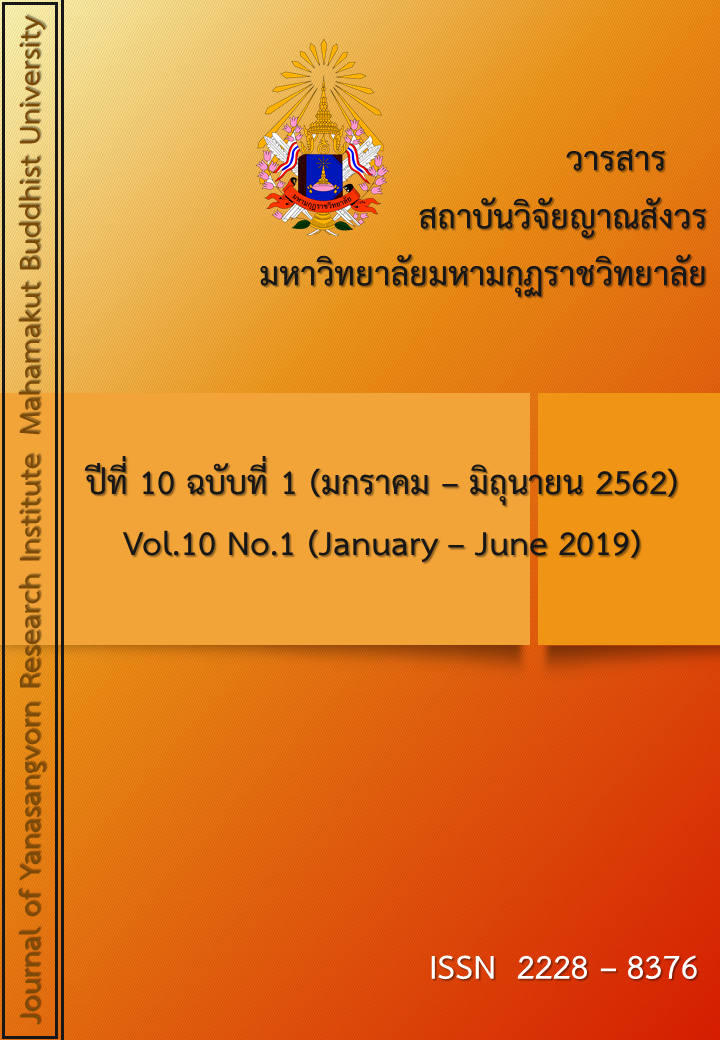THE LEADERSHIP OF MONKS REGARDING COMMUNITY DEVELOPMENT ACCORDING TO BUDDHIST APPROACH
Main Article Content
Abstract
This research article aims to study the leadership factors of monks regarding community development, and the leadership model of monks in community development according to the Buddhist approach. It uses a mixed system methodology, both qualitative and quantitative. The western approach endows a leader with the greatest role, or influence on others in an organization, and such a leader has an important role in driving the organization towards achieving its goal. However, a leader in Buddhism is one who has Sappurisadhamma, with 7 qualities, or one who does not have all 7 of them, because he has other qualities instead. For the quantitative data, the target is 2 developer monks. The tool is an in-depth interview, comprising 400 questionnaires. The results reveal that the leadership of monks towards community development according to the Buddhist approach is of a high level, in all the aspects of the environment, society, and culture, respectively.
Article Details
References
พระใบฏีกาสุพจน์ ตปสีโล. (2553). ชุมชนวิถีพุทธ. กรุงเทพฯ : สุขภาพใจ.
พระมหาสุรพงษ์ สุรวํโส (สีหมอก). (2555). ภาวะผู้นำของพระสงฆ์ในการบริหารการพัฒนาชุมชน : กรณีศึกษาพระครูโพธิวีรคุณ วัดโพธิการาม ตำบลโพนสูง อำเภอปทุมรัตน์ จังหวัด ร้อยเอ็ด. วิทยานิพนธ์ศิลปศาสตรมหาบัณฑิต (การบริหารการพัฒนาสังคม), คณะพัฒนาสังคมและสิ่งแวดล้อม สถาบันบัณฑิตพัฒนบริหารศาสตร์.
สายใจ เรือนใจหลัก. (2554). บทบาทของผู้นำชุมชนในการจัดทำแผนชุมชน : ศึกษากรณีตำบล มะขามล้ม อำเภอบางปลาม้า จังหวัดสุพรรณบุรี. สุพรรณบุรี : สำนักงานพัฒนาชุมชน จังหวัดสุพรรณบุรี
อัครพล วรรณสุทธะ. (2543). ภาวะผู้นำในการเสริมสร้างความเข้มแข็งเศรษฐกิจชุมชนพึ่งตนเอง : ศึกษากรณีเปรียบเทียบบ้านศิลารักษ์กับบ้านถิ่นสำราญ อำเภอพิบูลมังสาหาร จังหวัดอุบลราชธานี. วิทยานิพนธ์ปริญญามหาบัณฑิต, จุฬาลงกรณ์มหาวิทยาลัย.


